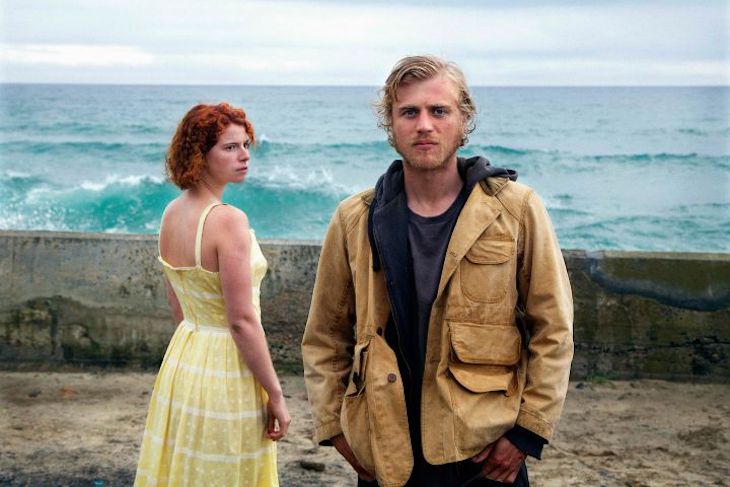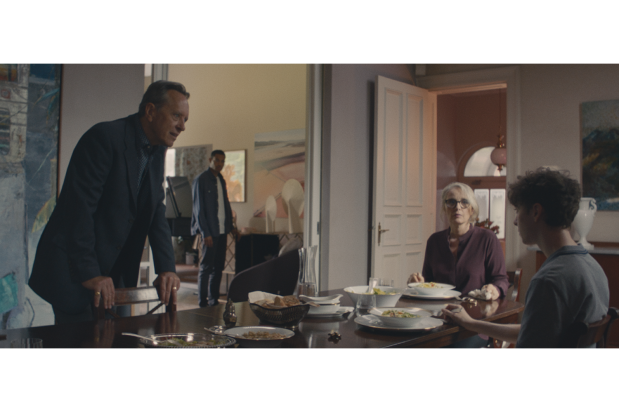When I first read that Beast is a serial-killer thriller my heart sank like a stone — yet more women raped, butchered, murdered; splendid, bring it on. But it is, in fact, fascinating and brilliant, and not like any serial-killer thriller you’ve seen before. This is because a woman owns it. Psychologically and emotionally. Not because she’s the actual killer, although if she were the killer would she need to work four times as hard to achieve the same notoriety as a man? Kill eight to his two?
But we mustn’t allow that to hold us up. Beast is a feature-length debut for writer/director Michael Pearce and it stars Jessie Buckley, who is phenomenal. She plays Moll, a tour guide who lives on Jersey with her controlling passive-aggressive mother (Geraldine James on top form, but then she’s never been on bottom form as far as I’m aware) and her father, who is slipping into dementia. They are bourgeois. Their carpets are beige and their sofa is beige, which is always a sign, as well as a bit of a cliché, admittedly. (I once met some bourgeois people who liked red, and some pattern.) Moll’s older brother and sister are, if you like, perfectly beige too, as they are wholly conventional, but Moll? She is troubled and unhappy. We understand this immediately, just as we understand that there is a darkness in her past (which will become clear later). We also understand that she has somehow been forced to repress what might be her true nature. We understand all this because Buckley is phenomenal at conveying Moll’s mental state, the throb of pain under her skin, and her isolation and confusion.
No one gets Moll. Even Moll doesn’t get Moll, who tries to fit in with her family and the local community — tries painfully hard, but just can’t swing it. Then she meets Pascal (Johnny Flynn), who saves her from an incident with another boy that was turning a bit rapey. Pascal has dirt under his fingernails, and blood under his fingernails. He carries a gun and has a bucket of shot rabbits in the back of his car. He is a loner too, so he gets what she’s about, and she welcomes being got. She falls for him, much to her mother’s horror, which is satisfying. And also, at one point, having returned home muddy, she smears a beige sofa with mud, which is also satisfying. But a serial killer is at large on the island. Three girls have been raped and murdered so far, and now there is a fourth. Pascal is a suspect and Moll protects him. But is she protecting an innocent man? Or a guilty one? Just as worryingly: how much does she care?
There are no jump scares. Instead, an eerie atmosphere of unease builds as Moll discovers a sense of freedom and becomes more and more in tune with her desires and physicality. The film is framed by whether Pascal comes good or doesn’t, but there are so many other dualities happening concurrently. While we welcome Moll’s liberation, it frightens us. While we want her to escape her stifling home, we don’t know if this is the best path. While we want her to be with Pascal, we also don’t.
Meanwhile, the landscape isn’t gloomy, dark or gothic. Instead, it’s always gloriously sunny and the sea is always a perfect, shimmering blue. But we know that horrific crimes have been committed here, and that knowledge is perhaps more unsettling than it would have been if the landscape had been otherwise.
Who is the beast? It isn’t clear. Is it Pascal? Is it Moll? Is it her mother? Or is this about the beast in us all? There is mud and dead animals and a hair that insistently grows under Moll’s chin, so is it about our own atavistic, animalistic tendencies, and the work we usually put into denying them? I can’t say. That’s for you to think about — possibly for days afterwards, just as you’ll also be thinking about where your sympathies lie. All I can say is that Buckley is mesmerising. Flynn not so much. His performance is quite blank, but as Moll projects so much on to Pascal, maybe such blankness has a point. Essentially, this is a compelling, layered portrait of a compelling, layered young woman, who owns it.
Got something to add? Join the discussion and comment below.
Get 10 issues for just $10
Subscribe to The Spectator Australia today for the next 10 magazine issues, plus full online access, for just $10.
You might disagree with half of it, but you’ll enjoy reading all of it. Try your first month for free, then just $2 a week for the remainder of your first year.














Comments
Don't miss out
Join the conversation with other Spectator Australia readers. Subscribe to leave a comment.
SUBSCRIBEAlready a subscriber? Log in